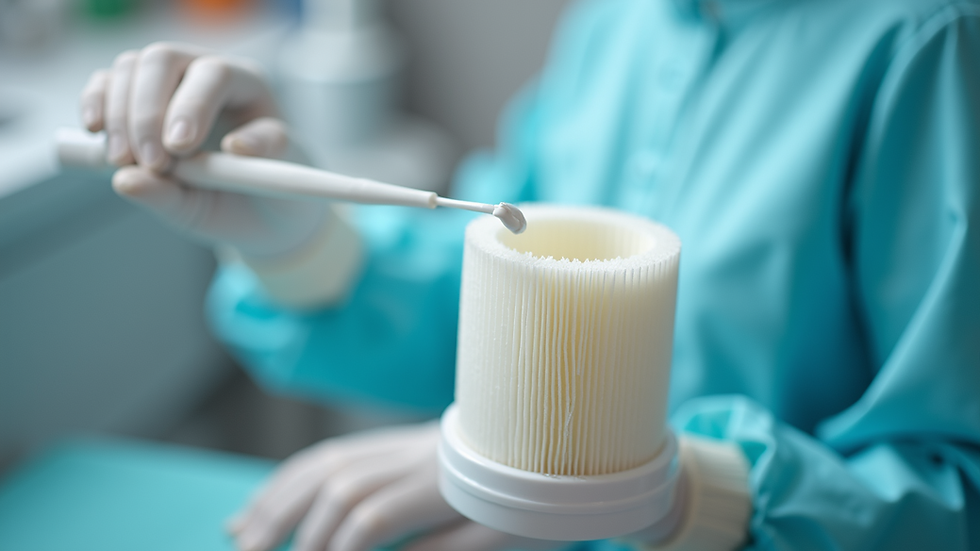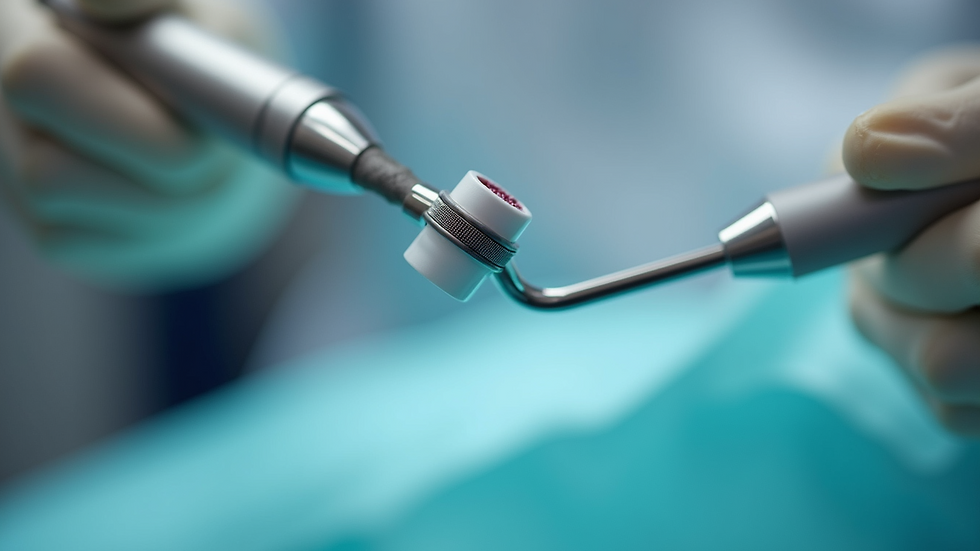Understanding the Importance of Proper Maintenance for Dental Equipment
- Randy Coppernoll
- May 19, 2025
- 3 min read
Maintaining dental equipment is critical for successful dental practices. Proper maintenance ensures functionality, accuracy, and patient safety. Neglecting regular upkeep can lead to poor performance, increased costs, and potentially harmful consequences for patients and dental professionals alike. This article delves into the significance of proper maintenance for dental equipment, highlighting best practices, common pitfalls, and tips for maintaining your equipment efficiently.
The Role of Dental Equipment in a Dental Practice
Dental equipment serves essential functions in both preventive and restorative dentistry. Instruments such as dental chairs, autoclaves, and handpieces are integral to patient treatment. For instance, a malfunctioning dental chair can lead to patient discomfort and session delays. Additionally, precise instruments like handpieces need to operate flawlessly to ensure accurate procedures.

When dental equipment fails, it can disrupt workflows. A survey by the American Dental Association indicated that nearly 30% of dental practices experienced equipment failures that negatively impacted patient care. Regular maintenance can prevent such issues and keep the practice running smoothly.
Effective Maintenance Strategies for Dental Equipment
Developing a robust maintenance plan is essential. Here are several strategies dental practices can implement:
1. Schedule Regular Inspections
Regular inspections of dental equipment are crucial. Create a maintenance schedule to routinely check and service each piece of equipment. This could be weekly, monthly, or quarterly depending on usage. Engaging professional services for detailed examinations offers added assurance.
2. Clean and Sterilize Regularly
Cleaning and sterilization are vital in preventing infections and maintaining equipment functionality. Instruments should be cleaned after each use according to the manufacturer's instructions. For example, handpieces should be lubricated and sterilized properly to extend their lifespan.
3. Keep Accurate Records
Maintain detailed records of all service and maintenance performed. This includes noting dates, the nature of service, and who carried it out. Such documentation aids in tracking the frequency of issues and assists in warranty claims if necessary.

4. Staff Training
Ensure that all staff members are trained in the proper use and maintenance of dental equipment. They should know how to handle equipment responsibly, recognize warning signs of malfunction, and understand the maintenance protocols in place. This fosters a culture of care and attentiveness towards equipment.
Consequences of Neglecting Dental Equipment Maintenance
The failure to maintain dental equipment comes with several repercussions:
1. Increased Repair Costs
Ignoring maintenance needs can lead to severe damage, resulting in expensive repairs or replacements. For example, waiting too long to service a handpiece can lead to a complete breakdown, necessitating a costly replacement. Investing in regular service can save considerable money in the long run.
2. Reduced Efficiency and Productivity
Broken or misfunctioning equipment slows down productivity. Delays can lead to cancellations, dissatisfied patients, and ultimately loss of revenue. Maintaining equipment assures maximum operational efficiency.
3. Legal and Ethical Implications
Failure to uphold equipment quality can expose dental practices to legal repercussions. If a faulty instrument causes injury to a patient, it may lead to lawsuits, license issues, or loss of reputation.

Recommended Vendors and Services for Dental Equipment Repair
When equipment maintenance exceeds in-house capabilities, knowing when to contact professionals is essential. Service providers can offer thorough inspections, repairs, and replacements for your dental equipment. For example, companies specializing in dental equipment repair provide insights into industry best practices and offer reliable service.
Consider establishing relationships with local or national vendors to ensure timely support and assistance. A list of trusted contacts is invaluable in emergencies.
Best Practices for Storing Dental Equipment
Proper storage of dental equipment can prolong its life. Here are some best practices:
1. Designate Separate Storage Areas
Keep dental equipment in designated areas to minimize damage risk. This includes ensuring they are away from direct sunlight or extreme temperatures. Proper storage prevents unnecessary wear and tear.
2. Use Protective Cases
For portable instruments, utilize protective cases or covers. This safeguards against accidental drops and environmental conditions that could damage equipment.
3. Organize Tools Neatly
Organizing tools neatly can prevent accidents or difficulties during procedures. An orderly setup can help the dental team quickly find the required instruments, ultimately saving time.
Final Thoughts on Dental Equipment Maintenance
Understanding the importance of dental equipment maintenance cannot be overstated. Investing time, energy, and resources into keeping tools and instruments in top condition is vital for delivering high-quality patient care, maintaining efficiency in practice, and safeguarding against potential risks. By developing comprehensive maintenance protocols and keeping abreast of manufacturers' recommendations, dental practices create a solid foundation for success.




Comments